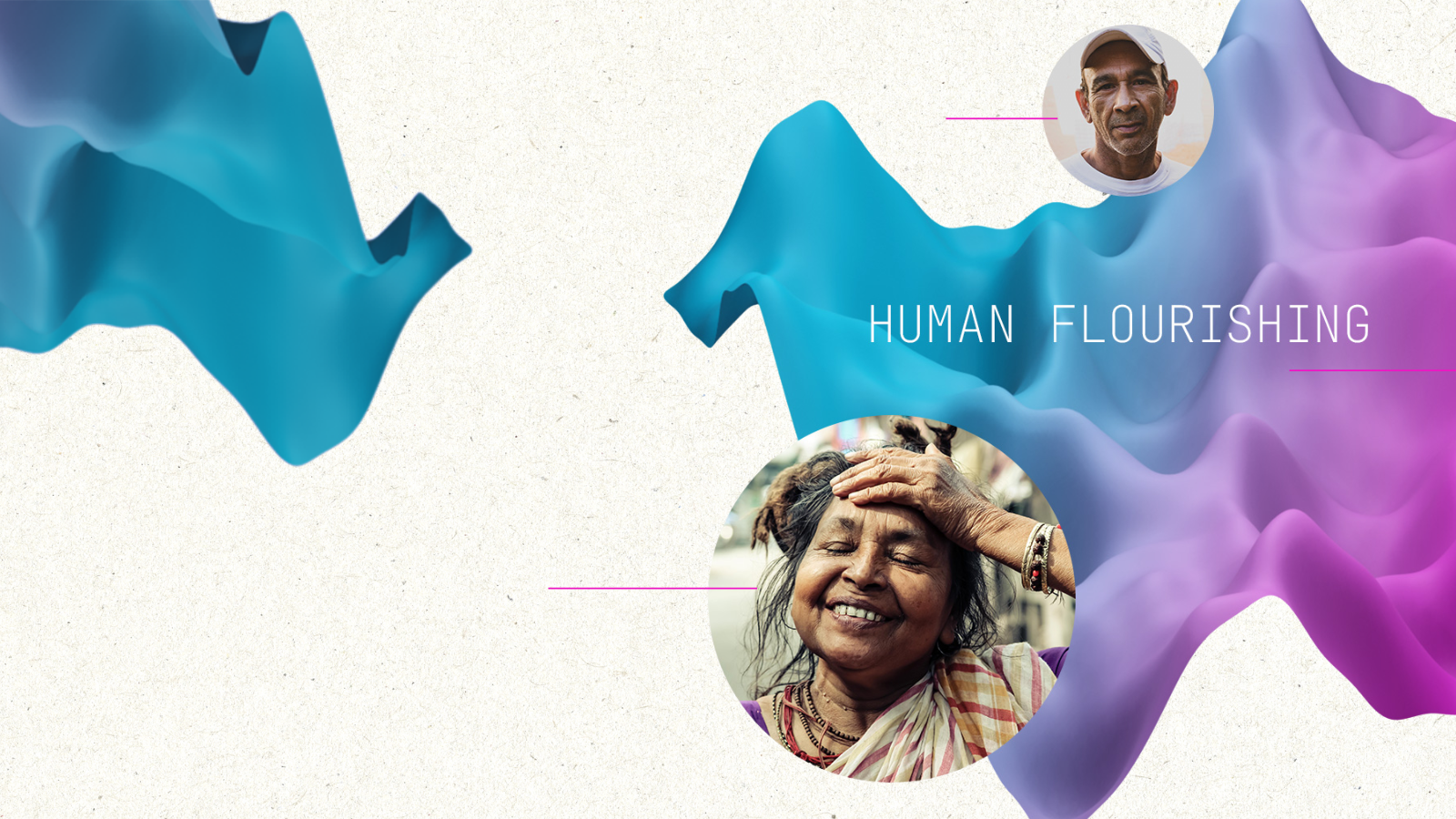
A new research project, one that is huge in both scale and potential for impact, is poised to increase our understanding of how human beings live and enjoy life to the fullest extent.
The Global Flourishing Study, or GFS, is a collaboration between Baylor University’s Institute for Studies of Religion, the Human Flourishing Program at Harvard University, Gallup, and the Center for Open Science (COS). GFS may substantially advance understanding of the societal determinants of human flourishing and will deeply enrich our knowledge about how this might vary within cultural contexts.
Crucially, GFS also includes multiple open science approaches and techniques in its study design, including preregistration, open data sharing, and transparent research collaboration. COS hopes to build on our work on GFS by taking key lessons and insights from this project and incorporating them into our engagement with other research communities.
Human Flourishing studies the factors that lead to the well-being of humanity and attempts to identify the barriers to a thriving life. Researchers at Baylor and Harvard are leading the effort to learn more about how humans flourish and to identify similarities and differences across cultures, geographies, mental and physical health, religious beliefs, and other demographic factors. To do so, they have partnered with Gallup and COS on GFS, a five-year longitudinal research effort that has surveyed more than 200,000 respondents from 22 countries on their happiness and life satisfaction, mental and physical health, close social relationships, and other dimensions of their life experience. This is the first wave of five annual data collections from the same individuals.
Early access to the data generated by GFS will be made widely available to researchers globally who pre-register their studies. Wave 1 data is expected to be released in 2024.
COS will be instrumental in making GFS an important example of ambitious open research design and output. We are hosting the GFS data on the Open Science Framework (OSF) and are making the data from the study an open-access resource so researchers, journalists, policymakers, and educators worldwide can access detailed information about what makes for a flourishing life. We have developed a preregistration workflow to allow for this early data access, which helps to mitigate questionable research practices, such as p-hacking, HARKing, and selective reporting. Through this workflow, a researcher will submit their analysis plan before observing the data and then transparently report all outcomes. This results in a more rigorous research process, thereby increasing the credibility of the study findings.
We are also supporting researchers with a dedicated website, OSF Registry, training and preregistration templates, help guides, webinars, and 1:1 calls to help them prepare their open research protocols. Since this is a global study, researchers will find the OSF guide in multiple languages particularly useful when navigating the OSF to upload their preregistration and manage their research.
GFS is a funded study that helps researchers in a specific domain to learn about and use open science practices that are directly impactful both on their immediate research projects and on their discipline as a whole. Our work on GFS will offer us more experience in managing large datasets and guiding researchers in open science protocols they would like to try but are not familiar with. We plan to implement these techniques in other contexts over the next several years to help bring radical change to different fields of research.
In order to leverage the substantial experience we gain and the partnerships we cultivate through GFS, COS will need supplementary funding support. We anticipate tens of thousands of dollars (USD) per year in ongoing expenses beyond the scope of GFS grant funding (such as staff time, technical research infrastructure, and communications platforms costs). Covering these costs will allow us to engage additional research communities and directly support researchers in the same way we are doing through GFS.
If you’d like to support these exciting developments, we invite you to donate today! Tax-deductible gifts from individual supporters like you are especially valuable because they are among the most flexible funds we have at our disposal. And, read about GFS here to learn more about the big impact this study is set to have on social science research.
We are proud to collaborate with our partner researchers at Baylor, Harvard, and Gallup on this unprecedented research effort. We look forward to updating you on our progress. Thank you for considering supporting us in this effort.

6218 Georgia Avenue NW, Suite #1, Unit 3189
Washington, DC 20011
Email: contact@cos.io

Unless otherwise noted, this site is licensed under a Creative Commons Attribution 4.0 International (CC BY 4.0) License.
Responsible stewards of your support
COS has earned top recognition from Charity Navigator and Candid (formerly GuideStar) for our financial transparency and accountability to our mission. COS and the OSF were also awarded SOC2 accreditation in 2023 after an independent assessment of our security and procedures by the American Institute of CPAs (AICPA).
We invite all of our sponsors, partners, and members of the community to learn more about how our organization operates, our impact, our financial performance, and our nonprofit status.